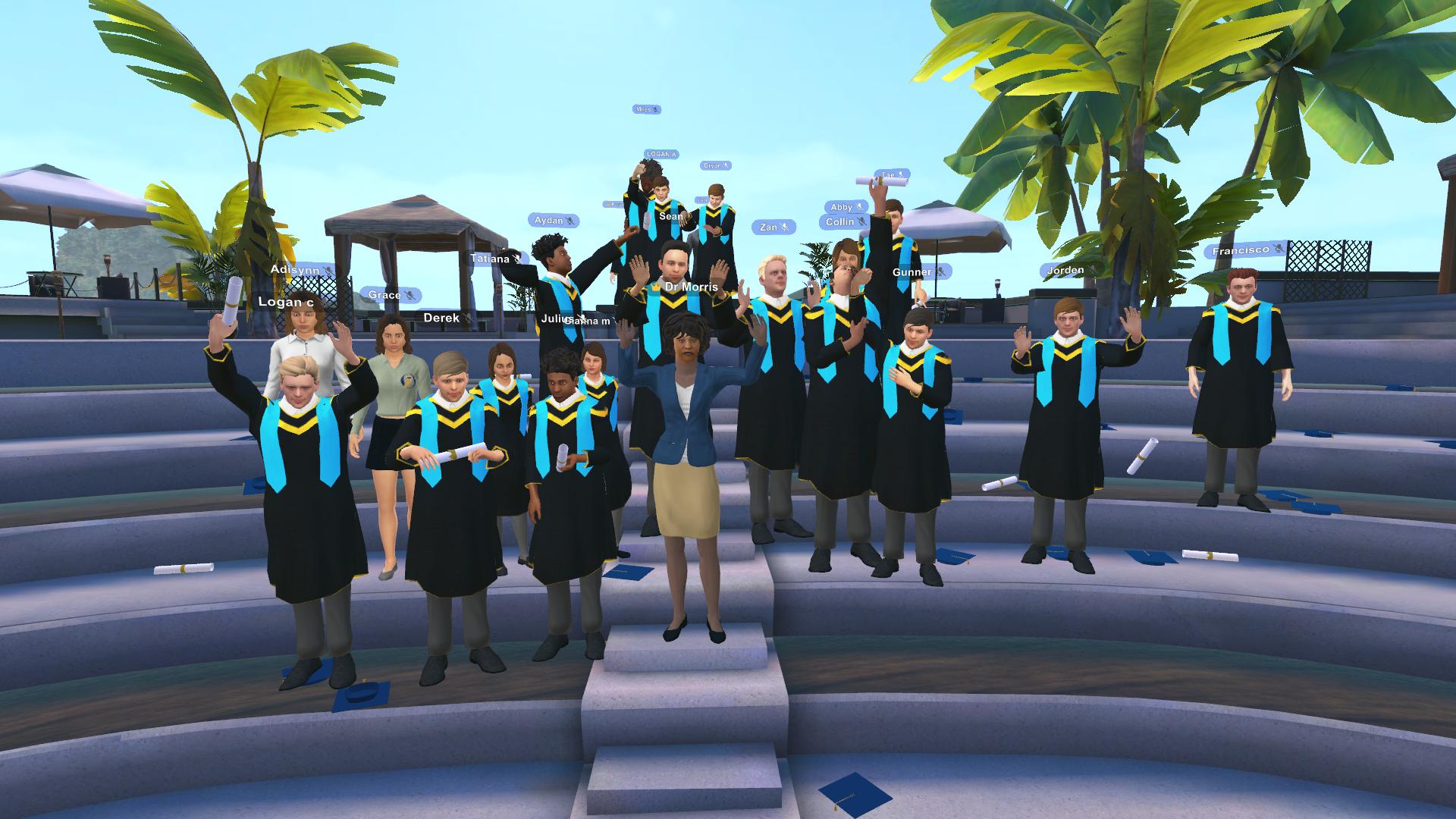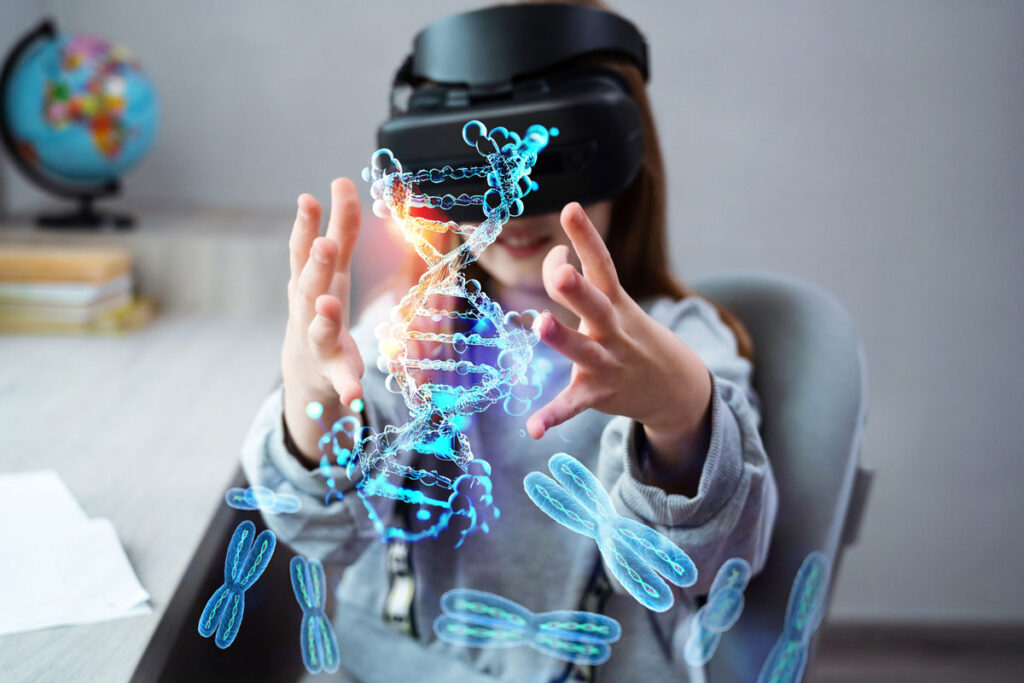At Optima Academy Online, we believe in preparing our students for a future filled with opportunities and challenges they must overcome. The Core Knowledge Curriculum is central to achieving this goal. By offering a structured and content-rich foundation, this curriculum helps young people develop critical thinking and a broad knowledge base.
The Core Knowledge Sequence provides students with the skills and understanding necessary for future success. It emphasizes essential knowledge across subjects, from literature and history to science and mathematics, ensuring that every student is well-rounded and informed. This approach creates a strong academic foundation that our students carry into their future endeavors.
Our commitment to online educational excellence means integrating the Core Knowledge Curriculum with modern tools, like virtual reality. This combination not only engages students but also enhances their learning experiences. By giving students access to high-quality education regardless of their location, we ensure they are ready to thrive in a rapidly changing world.
Foundations of Core Knowledge Curriculum
The Core Knowledge Curriculum is designed to equip students with a solid academic foundation. Key elements include a well-defined framework and a structured sequence of content across grade levels.

Conceptual Framework and Philosophy
The Core Knowledge Curriculum is anchored in the belief that knowledge builds on knowledge. This idea emphasizes a structured, cumulative learning process. We start with basic concepts and gradually introduce more complex ideas. This helps students build a strong base of information they can draw from in the future.
Our approach ensures that students gain a broad understanding of various subjects. By focusing on content-rich education, we help scholars develop critical thinking and improve their ability to make connections between different fields of knowledge. This interdisciplinary approach is essential for success in the 21st century.
Core Knowledge Sequence and Its Development
The Core Knowledge Sequence outlines specific content that students should learn at each grade level. It covers subjects such as language arts, history, geography, mathematics, and science. This structured approach helps ensure that all students receive a well-rounded education.
This sequence was developed after extensive research and input from educators. It aims to create a consistent and coherent curriculum that supports knowledge building. By specifying what students need to know at each stage, we provide clear milestones and help students progress systematically. This prepares them for future academic challenges and lifelong learning.
Components of Core Knowledge Curriculum
The Core Knowledge Curriculum is designed to provide students with a solid foundation in various academic subjects through a detailed, sequential approach. This builds knowledge and skills through language arts, mathematics, science, history, geography, and the fine arts.
Language Arts and Literacy
Language arts and literacy are essential components of the Core Knowledge Curriculum. We emphasize reading great books from various genres, such as poetry and classic literature, to develop comprehension and critical thinking. Vocabulary building is a crucial part of the curriculum, helping students expand their word knowledge and usage.
Our curriculum also includes comprehensive literacy instruction integrating spelling, grammar, and writing skills. Students learn to write essays, conduct research papers, and create an argumentative speech, enhancing their ability to communicate effectively. These elements help foster a love for reading and writing, crucial for academic success.
Mathematics and Science
Mathematics in the Core Knowledge Curriculum focuses on creating a foundation in basic math concepts which incrementally build in complexity. Starting from basic arithmetic in early grades, students advance through algebra, geometry, and statistics. This structured approach ensures they grasp fundamental concepts before moving on to more complex topics.
In science, we cover a broad spectrum from physical sciences to life sciences and earth sciences. Hands-on projects and experiments are integral, helping students understand scientific principles through real-world applications. Lessons in biology, chemistry, and physics are designed to be engaging and informative, fostering scientific thinking and problem-solving abilities. At Optima Academy Online, science is introduced in Kindergarten.
History, Geography, and the Arts
Our history curriculum is both deep and wide, covering events and figures from ancient to modern times. Students explore different cultures, understand historical contexts, and learn about significant events that shaped our world. Geography lessons complement history by teaching students about the physical and human characteristics of places and regions.
The arts, including music and fine arts, begin in Kindergarten. Through activities like drawing, painting, and musical performance, students learn to appreciate artistic expressions and historical significance. Studying these subjects helps develop creativity and provides a well-rounded educational experience.
In summary, the Core Knowledge Curriculum’s structured and cumulative approach across various subjects prepares students for future success. The focus on comprehensive content in language arts, mathematics, science, history, geography, and the arts ensures a robust and immersive learning experience.
Teaching and Learning in Core Knowledge
Core Knowledge emphasizes structured, content-rich learning that fosters academic achievement and creative problem-solving. We will explore classroom activities, assessment methods, and the innovative interdisciplinary approach that are integral to this curriculum.
Classroom Activities and Engagement
In Core Knowledge classrooms, students engage in hands-on activities that foster deep understanding and active participation. Teachers follow a clear sequence of topics, ensuring that knowledge builds year by year.
Hands-on activities, discussions, and projects are central to the learning process. For example, in a history lesson, students might recreate historical events through role-playing.
Project-based learning encourages students to apply what they’ve learned in real-world contexts. This approach enhances creativity, critical thinking, and problem-solving skills. Students often work in groups, promoting collaboration and communication.
Assessment and Achievement
Assessment in Core Knowledge is designed to measure not just rote memorization but the depth of understanding and ability to apply knowledge. At Optima Academy Online, teachers use a variety of assessment tools in order to show student growth.
Formative assessments like quizzes, oral presentations, and projects help monitor progress and guide instruction. These continuous checks ensure students are mastering the content as they go along.
Summative assessments, such as end-of-unit tests and portfolios, provide a comprehensive picture of student achievement. This combination of assessment methods ensures a well-rounded evaluation of each learner’s skills and knowledge.
Interdisciplinary Approach and Innovation
Core Knowledge incorporates an interdisciplinary approach, connecting subjects to create a more cohesive learning experience. For instance, lessons in history might be linked with literature, allowing students to explore themes from multiple perspectives.
Integrating art, music, and physical education with traditional subjects further enriches the curriculum. This not only makes learning more engaging but also helps students develop a broad range of skills and interests.
Innovation is key, with technology playing a supportive role. Virtual reality field trips, for example, can bring historical events or scientific concepts to life, making them more tangible and memorable for students. This blending of traditional and modern techniques prepares students for future academic and personal success.
Real-World Benefits of Core Knowledge
The Core Knowledge Curriculum offers several tangible benefits. It equips students with essential skills for higher education and employment, fosters continuous learning, and positively impacts student engagement and knowledge retention.
Core Knowledge Curriculum often is taught using experiential learning techniques. Experiential learning is known to prepare students for higher education and employment, build knowledge-based societies, and impact teachers and policy development.
Preparation for Higher Education and Employment
Core Knowledge prepares students for both college and work by providing a solid foundation in key subjects. This curriculum covers detailed knowledge across seven areas from K-8, ensuring students know fundamental concepts like geography, history, and science.
This detailed approach helps students build critical thinking skills and competencies that employers look for. Furthermore, it supports better communication in professional settings, making graduates more competitive in the job market. Leadership and collaborative skills are also emphasized, which are crucial for success in any field.
Building Knowledge-Based Societies and Communities
The Core Knowledge Curriculum strengthens society by promoting shared knowledge. This common foundation allows for better collaboration and understanding among people from different backgrounds. Schools using this curriculum produce students who are well-informed and capable of making informed decisions.
Such knowledge-based schooling supports the development of well-rounded citizens. By learning a broad range of subjects, students can contribute effectively to their communities. They gain insight into societal issues, which enhances their ability to lead and participate in civic matters.
Impact on Teachers and Policy Development
Teachers benefit greatly from the Core Knowledge Curriculum. It provides clear guidelines and content, reducing the guesswork in lesson planning. This ensures a more structured and efficient teaching process. Teachers can focus on delivering quality education and fostering students’ growth.
Policymakers also benefit as this curriculum provides a proven framework for educational success. Data shows that students in Core Knowledge schools often outperform their peers in reading and other subjects. This evidence supports the development of policies that aim to replicate these successes on a larger scale.
Our role at Optima Academy Online is to bring these benefits directly to students, regardless of their location, through our immersive virtual reality environments and rich, content-based instruction. With Core Knowledge, we ensure that every student has the tools they need for future success.



